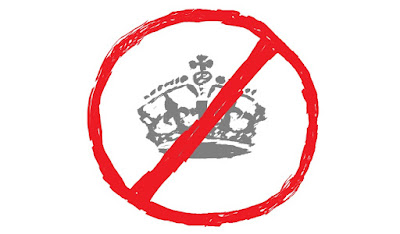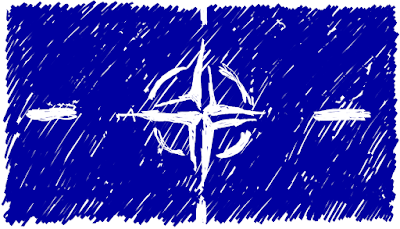The "Great Reset", espoused by the World Economic Forum, is derided by many for being the idea of an elite who are responsible for the world's problems in the first place. But is that really a historical irregularity that deserves condemnation?
Such things as the Peace of Westphalia and the so-called Washington Consensus shape the political and economic models we know and accept. Both are the works of ultra-elite individuals, representing the microscopic affluent minority among us. Everyone accepted such things and went on, believing it was for the best.
When the super elite try to do the same now, they are met with significant opposition and, dare I say, conspiracy theories from many people who see it as some kind of coup. It is seen by some as uniquely diabolic, a usurpation of all authority over our future, removing our control of our destiny.
In reality, for all its problems, the Great Reset is no coup. Those who came up with it were already in charge of most economic policies, including those things they want to change. This kind of elite-driven reform is a continuation of what we have always known since at least the end of the Medieval era and the formation of modern states.
Great Reset threatens democracy?
Absurd. To condemn the Great Reset as a usurpation of democracy, while favouring the existing economic consensus as somehow more acceptable, is ill-informed. The current economic consensus was also arbitrarily set up by a small elite, and is demonstrably harmful to society and the environment.
The existence of nation-states at all was the arbitrary decision of a small elite in 1648, in what is now Germany. The very things supported by the masses are simply constructed by small elites, and the masses acquiesced.
The argument that the Great Reset is a usurpation of democracy seems to have come out of nowhere. Nothing is being cited to support it. The Great Reset seems to be more about altering the economic model and has nothing to do with the political system or appointment of national leaders, or even means of pressuring the states at all. It calls for no change of constitution in any nation, and no realignment of the world's nations with any cause. If anything, it seems to be trying to pressure corporations into agreeing with environmental agendas already declared by all states such as cutting carbon emissions to prevent the catastrophic rise in temperatures that may cause mass extinction.
Because the Great Reset does not posit any alternative to democracy or say democracy is a problem, it is not a threat to it. If anything, it seems to propose tampering with and rewriting the motivations of the corporations so that they really share the state's concerns about protecting the public and environment instead of posting adverts in which they pretend to care.
Claiming corporate overlords will take the place of politicians in the Great Reset seems like a stretch, as there is no literature or evidence whatsoever that this is suggested. The claim seems to be an equivocation fallacy, conflating economic management with political and going on to suggest the latter is imperilled.
Great reset threatens the free market?
Possibly. An argument can be made that the Great Reset is a threat to free markets, because it proposes altering the motivations of the corporations so that they are less driven by profit and more driven by doing good for society and the environment.
It is likely that those most alarmed with the Great Reset are the executives of companies short of those that are sufficiently large to be considered "stakeholders" under "stakeholder capitalism". They want their companies to grow, and that means at least a bit of waste and pollution in the process. They don't want economic growth to be frozen by governments and stakeholders, and social and environmental responsibility added as metrics of company success rather than just profit.
You'll own nothing
No, this does not mean your handbag or pencil case will be taken off you, or that your clothes will be rented each week and forcibly removed from you if you run out of money. It also does not mean people will have to pay for air.
The way this phrase has been misunderstood shows how much people read into phrases and start talking about them before looking up what was actually meant. Sometimes, writers use hyperbole. In this case, the Great Reset meant to advocate against waste.
A form of this would be what already happens in British supermarkets. Cheap, light plastic bags used to be given to shoppers and they would invariably end up thrown away, usually ending up next to railway lines for some reason I couldn't fathom. They are probably still there.
In 2015, the British government made companies add a charge for plastic bags. There was then a shift towards better quality bags - bags for life - that were meant to be reused by shoppers. When it eventually broke, you would hand this back at the shop and be given a fresh one for free, while the broken one is recycled.
The owning of nothing isn't necessarily all-encompassing or meant to suggest measures to confiscate things off people, as is being implied by critics. It is more an alteration of the meaning of ownership, so that things are more readily and easily recycled, reused or reallocated to somebody else when you are done, to cut back on waste.
The idea that we own anything in the first place under the nation-state model is actually something that can be seriously questioned. In a sense, we already own nothing. When you claim to own anything, you are really just borrowing it from the government or other highest authority in the land and pleading for them to act as if you own it for a while. In the UK, if you die and have no next of kin or any known relatives, the Crown inherits your property, as the Crown is a kind of supreme owner and final arbiter of who owns anything. Everything is de facto government property and territory. Already, ownership of anything is merely a temporary right, granted out of the government's generosity or some paperwork it is obliged to respect, and not because of you.
Homes and cars may be passed around with a different model of ownership that reduces the waste of resources. If electrical cars in future are all rented, or are simply part of an AI-driven public transport grid that has done away with all vehicle ownership, there is no reason to complain. You don't own a road or railway, nor do you influence the traffic control systems that keep you alive on the road. The sense of freedom and agency while driving is an illusion.
Building back better
The adoption of the Great Reset's "build back better" as a campaign slogan in the US and Canada is enough to refute the idea that a corporate coup is taking place in Western countries under the Great Reset. Politicians are actually campaigning for this, showing that they are seeking a democratic mandate.
In addition, the publication of documents like Klaus Schwab's The Great Reset (2020) is also a refutation of the idea of a cabal secretly taking over. This stuff is publicly advertised, and its virtues are being extolled by these people.
The desire for a Great Reset of capitalism is the result of a planet and society tired of waste, pollution and the externalisation of costs by greedy companies. It is possible that hitherto dominant corporate overlords are offering terms of surrender to the public and trying to save their own necks by advocating the Great Reset, much as France's Louis XVI was compelled to accept the Rights of Man.
Come up with alternatives if you don't like it
The world left had the seemingly now-dead World Social Forum as an alternative to the World Economic Forum. Being the origin of the phrase "a new world is possible", it at least tried to offer alternatives to neoliberal economics. Opponents of neoliberalism continuously suffered from an inability to propose a viable alternative, instead just ending up complaining about the status quo while voters in the biggest Western economies refused to risk voting for their candidates such as Jeremy Corbyn. Attempts to implement alternatives in some countries like Venezuela resulted in economic chaos.
Rejection of the economic system can only provide a sufficient basis to govern a country, if faced with the utter failure and collapse of the existing system to the point of famine. This is what happened in both the French and Russian revolutions, in which mere critiques of the old system led to the rise of the new economic models of bourgeois capitalism and Soviet socialism respectively. The advice from these revolutionaries would be: to overthrow the Great Reset, first let it fail.
Whatever the case, netizens and conspiracy theorists will get it all wrong and succumb to abject confusion because they didn't simply visit the WEF website or read the primary sources before reading opinions about them. An idea might be to get Klaus Schwab's book and criticise it from a fresh perspective, rather than hastily siding with other people's opinions.


















